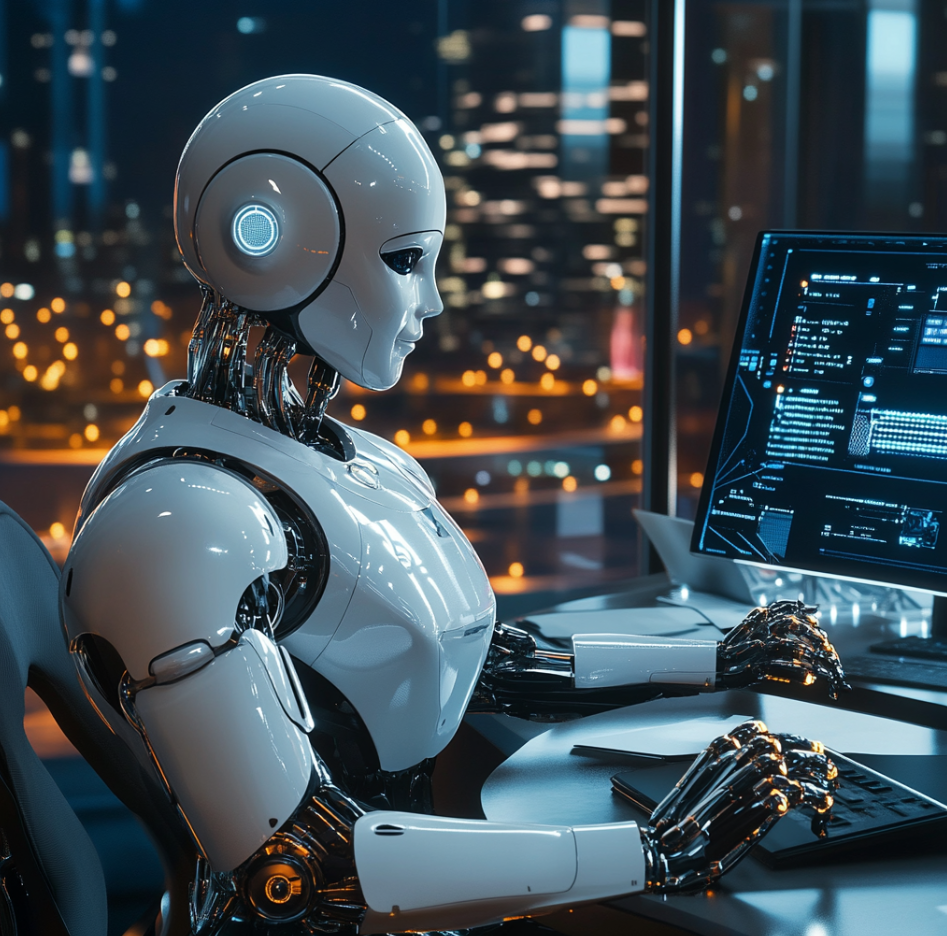The Rise of the Personal AI: Your Future Best Friend, Co-Worker, and Confidante?
From Siri's simple voice commands to sophisticated AI capable of managing our lives, the evolution of personal assistants is accelerating at an unprecedented pace. But where are we headed, and what does this mean for our future?
Just a decade ago, the idea of having a personal AI assistant felt like science fiction. Today, millions of people interact with Siri, Alexa, or Google Assistant daily, using them for mundane tasks like setting alarms, playing music, or checking the weather. Yet, these interactions barely scratch the surface of what's coming. The future of personal AI assistants is far more profound, promising to reshape our lives in ways we're only beginning to imagine.
Beyond Task Management: The Dawn of Personalized AI
The next generation of AI assistants will transcend simple task management. They will evolve into personalized companions, capable of understanding our individual needs, preferences, and even emotions. Imagine an AI that not only knows your schedule but also senses your mood, offering a calming meditation when you're stressed or an upbeat playlist when you need motivation.
This personalization will be driven by several factors:
-
Advanced Machine Learning: AI models are becoming increasingly sophisticated at understanding natural language, recognizing patterns, and making inferences. This allows them to learn from our interactions, anticipate our needs, and offer truly personalized experiences.
-
Emotional Intelligence: Researchers are developing AI systems that can recognize and respond to human emotions. This will enable assistants to provide empathetic support, offer tailored advice, and even act as companions for those who need it.
-
Contextual Awareness: Future AI assistants will be deeply integrated into our lives, accessing data from our devices, calendars, and social media to understand our context and offer relevant assistance. Imagine an AI that knows you're in a meeting and automatically silences your phone or reminds you of a relevant document you might need.
The AI-Powered Workforce: Collaborating with Intelligent Machines
The impact of personal AI will extend far beyond our personal lives, revolutionizing the way we work. AI assistants will become indispensable collaborators, augmenting our capabilities and boosting productivity.
-
Intelligent Automation: Repetitive tasks will be delegated to AI assistants, freeing up humans to focus on creative problem-solving and strategic thinking. Imagine an AI that handles your email, schedules your meetings, and even generates reports, allowing you to concentrate on higher-level tasks.
-
Personalized Learning: AI tutors will provide personalized learning experiences, adapting to individual learning styles and pacing. This will revolutionize education and professional development, making knowledge more accessible and learning more efficient.
-
Decision Support: AI assistants will analyze vast amounts of data to provide insights and recommendations, helping us make informed decisions. Imagine an AI that analyzes market trends to advise on investments or sifts through research papers to support scientific discovery.
The Ethical Landscape: Navigating the Challenges of AI
The rise of personal AI brings with it a host of ethical considerations that we must address proactively:
-
Privacy Concerns: As AI assistants become more integrated into our lives, they will have access to vast amounts of personal data. Ensuring the privacy and security of this data is paramount.
-
Bias and Discrimination: AI models are trained on data, and if that data reflects existing biases, the AI can perpetuate and even amplify those biases. We must ensure that AI assistants are developed and deployed in a way that is fair and equitable.
-
Job Displacement: As AI takes over tasks previously performed by humans, there is a risk of job displacement. We need to invest in education and training programs to prepare the workforce for the changing job market.
-
Dependence and Autonomy: As we rely more on AI assistants, there is a risk of becoming overly dependent on them, potentially eroding our own skills and autonomy. We must find a balance between utilizing AI's capabilities and maintaining our human agency.
The Future is Personal: A Glimpse into the Possibilities
While the exact trajectory of personal AI is uncertain, we can envision several potential scenarios:
-
The AI Companion: AI assistants could evolve into true companions, offering emotional support, engaging in meaningful conversations, and even forming bonds with humans. This could have profound implications for those who struggle with loneliness or social isolation.
-
The AI-Powered Self: AI could become seamlessly integrated with our bodies and minds, augmenting our cognitive abilities, enhancing our physical performance, and even blurring the lines between human and machine.
-
The AI-Managed Society: AI could play a central role in managing our societies, optimizing resource allocation, improving public services, and even assisting in governance.
Navigating the Future: A Call for Responsible Development
The future of personal AI is filled with both promise and peril. It is crucial that we approach the development and deployment of AI responsibly, prioritizing human well-being, ethical considerations, and societal impact.
We need to engage in open and inclusive dialogue about the future we want to create with AI. We need to establish clear ethical guidelines and regulations to ensure that AI is used for good. And we need to invest in education and research to stay ahead of the curve and harness the full potential of this transformative technology.
The rise of personal AI is not merely a technological revolution; it is a societal one. It is a journey into uncharted territory, and the choices we make today will determine the kind of future we create for ourselves and generations to come.


